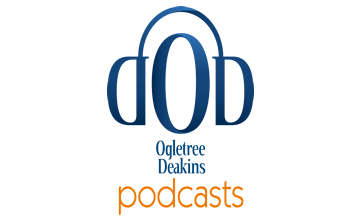Podcast: Play in new window | Download (Duration: 25:32 — 35.1MB) | Embed
Subscribe: Apple Podcasts | Spotify | TuneIn | More
In this episode of Dirty Steel-Toe Boots, Phillip Russell (shareholder, Tampa) is joined by Lauren Lenhart (associate, Tampa) to continue their conversation about OSHA informal settlement conferences. Lauren and Phillip remind employers about the importance of identifying companies’ goals and priorities in order to achieve an optimal outcome. They also provide practical pointers on how to conduct settlement conferences, including the importance of understanding the implications of other ongoing investigations and/or related inspections, strategies for handling citation items, and effective engagement with OSHA during the conference.
